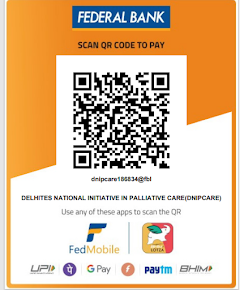Prepared by Sr. Hanife MacGamwell
VOLUNTEERING
DO’s
· KEEP patient and family information confidential
· RESPECT person’s right to (physical and emotional) privacy
· ALWAYS ask if it is the right time to visit or right time to call
· IF you have an appointment for a visit or a call and you cannot be on time or unable to make it at all let them know
· ALLOW the patient and/or family to let you know how much they already know regarding the diagnosis and prognosis etcand how much they want to know. Arrange for a nurse or doctor to discuss further
· Encourage person to initiate subjects they wish to discuss
· Listen without judging.
· Have a cheerful approach
· Be honest and sincere.
· Be available and reliable and consistent
· Build trust
· BEWARE of your body language and the tone of your voice
· Keep your feelings to yourself never allow alarm, anger, shock, disgust show in your face and/or in your voice
· Encourage independence as limitations permit
· Reach out
· Be respectful and non-judgmental
· Be genuine, open, honest, and sensitive
· Be knowledgeable of resources etc, if you do not know something say you I do not know but I will find out and get back to you” DO get back the patient or family
· Provide encouragement and support
· Expect repetition and go with it.
· Be flexible and go with changing needs.
· Be informed - but remember you are not a teacher
· Promise only what you can deliver.
· KEEP your promise
· Listen with your whole self
· Use open-ended questions
· Be OKAY with SILENCE.
· Summarize what was said, what you need to follow up on
· Know and admit your strengths and weaknesses
· Remember you are volunteer, a support do not discuss medications, medical diagnosis etc. listen to the patient and the family, take notes, share with the team and get back to them.
· During a visit make sure your phone is in silent mode
· KEEP Objective and subjective NOTES OF EACH
· INTERACTION WITH PATIENTS AND FAMILIES
· COMMUNICATE WITH TEAM MEMBERS
DONT’s
· Make a call or go for a visit if you are NOT in a good mood
· Use “you should”
· Give advice
· Over praise.
· Intrude
· Probe
· Appear busy, distracted
· Follow your own agenda
· Talk down to person
· Stay too long or talk too long
· Monopolize the conversation
· Gossip
· Patronize eg: “that’s all right now”
· Rely on the use of clichés-
· Change the subject
· Ignore the problems raised by the person
· Use closed, irrelevant or inappropriate or “WHY” questions
· Use inappropriate warmth or sympathy
· Give your personal number - if possible hide your number on cell phone or use landline- or any other volunteer’s personal number
· Make promises you cannot keep
· Take pictures without their permission



No comments:
Post a Comment